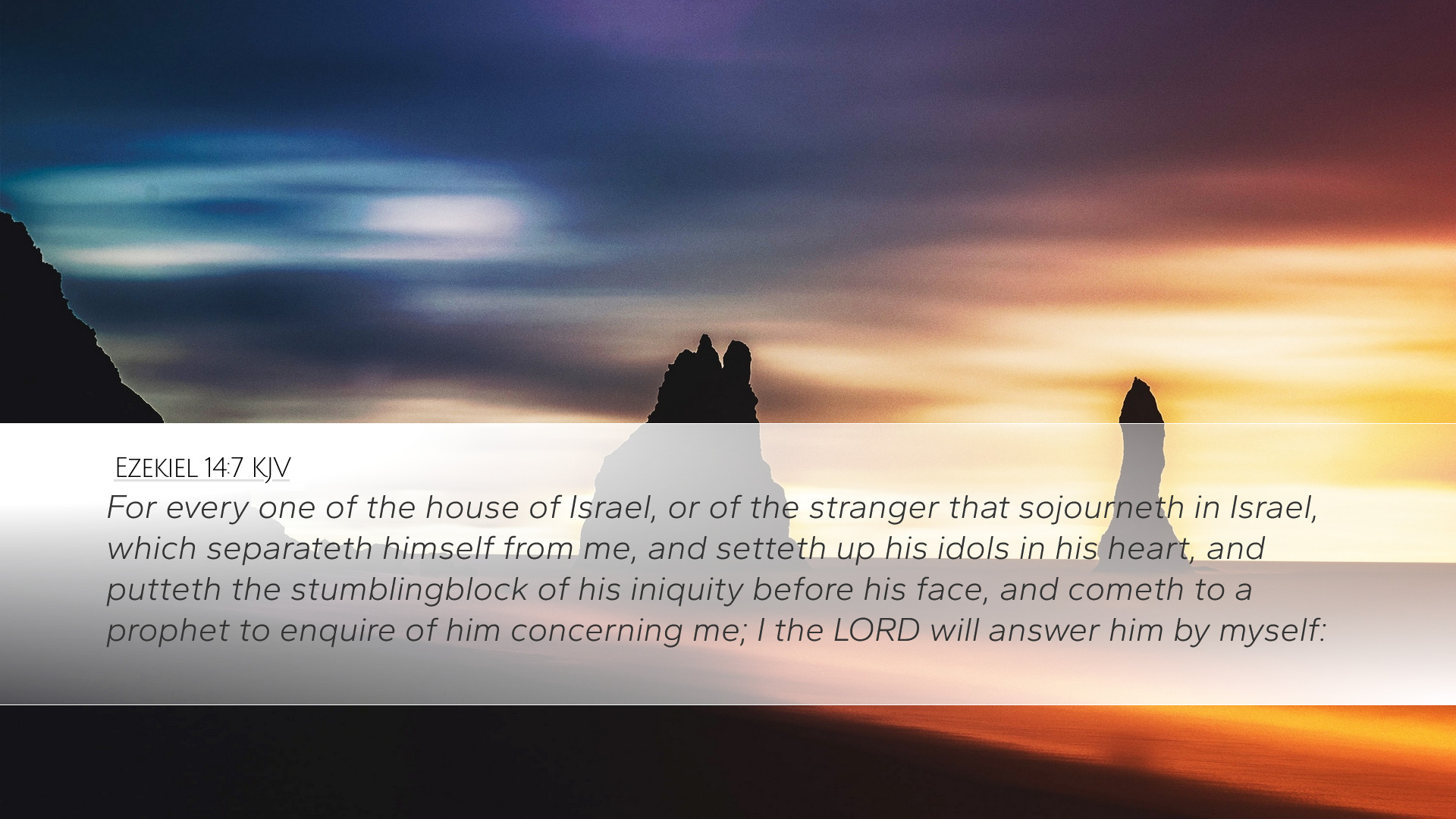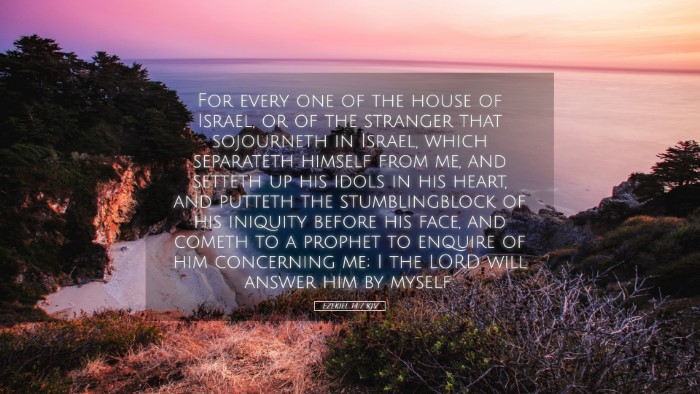Ezekiel 14:7 - Summary of Bible Commentary
Ezekiel 14:7 states: "For every one of the house of Israel, or of the strangers that sojourn in Israel, which separates himself from me, and sets up his idols in his heart, and puts the stumblingblock of his iniquity before his face, and comes to a prophet to inquire of him concerning me; I the Lord will answer him by myself."
Contextual Overview
This verse emerges from a critical point in Ezekiel’s prophetic ministry, addressing the people of Israel in exile and their struggle with idolatry. Ezekiel, as a prophet, not only conveys the oracles of God but also engages with the ethical and spiritual state of his contemporaries.
Thematic Insights
-
Separation from God:
In this verse, the phrase "separates himself from me" denotes a conscious decision to distance oneself from God, illustrating the spiritual consequences of turning away from divine authority. Henry emphasizes that this separation is both a heart condition and a moral choice, resulting in God’s withdrawal from the individual.
-
Idols of the Heart:
The "idols in his heart" signal the essence of personal and communal apostasy. Clarke explains that these idols are not merely physical representations but include any alternatives we choose to prioritize above our relationship with God. The heart, in biblical literature, is the seat of desires and intentions, and to set up idols there is to fundamentally misalign one's loyalty away from God.
-
The Stumblingblock:
The "stumblingblock of his iniquity" indicates what obstructs a relationship with God. Barnes elucidates this as sin that does not merely entice but ensnares the seeker, thus illustrating the depth of deceit ingrained in idol worship and moral compromise.
-
Seeking Prophetic Counsel:
The paradox of approaching a prophet while living in rebellion is highlighted as a critical moral inconsistency. Albert Barnes notes that such actions are a form of mockery toward God, as one pretends to seek divine guidance while clinging to the very sins that separate him from God.
Divine Response
The ultimate assertion of God’s response—“I the Lord will answer him by myself”—is profound. This declaration from God indicates a direct and personal engagement with those who choose to seek counsel despite their idolatrous practices. Matthew Henry observes that God, in His sovereignty and holiness, does not honor the prayers of those who are insincere. This reinforces the principle that true dialogue with God requires integrity in one’s relationship with Him.
Practical Applications
For contemporary readers, especially pastors, students, and theologians, this verse serves as a poignant reminder to examine our own hearts for hidden idols and distractions that disrupt our communion with God. Key applications include:
-
Self-Examination:
Reflect on personal motives and desires; ensure that our hearts are attuned to God rather than filled with worldly distractions.
-
Integrity in Seeking God:
Encourage sincere prayer and supplication, emphasizing that God desires authenticity over superficial rituals.
-
Teaching Idolatry:
Educate congregations on the nature of idolatry, demonstrating how modern-day idols can take various forms, including technology and personal aspirations.
Theological Reflections
Theologically, this verse challenges the notion of dualistic worship where one attempts to serve both God and personal desires. The exclusivity of God’s holiness calls for undivided devotion. Clarke’s insights indicate a divine expectation that requires complete allegiance and trust in God’s provisions and commandments.
Conclusion
In conclusion, Ezekiel 14:7 encapsulates a critical juncture in understanding the nature of idolatry, the seriousness of separation from God, and the necessity of sincere repentance. The holy sovereignty of God demands a responsive heart, free from the snares of iniquity. For pastors and scholars alike, this verse not only calls for reflection and correction but also reaffirms the unwavering call to fidelity in one’s relationship with God.


